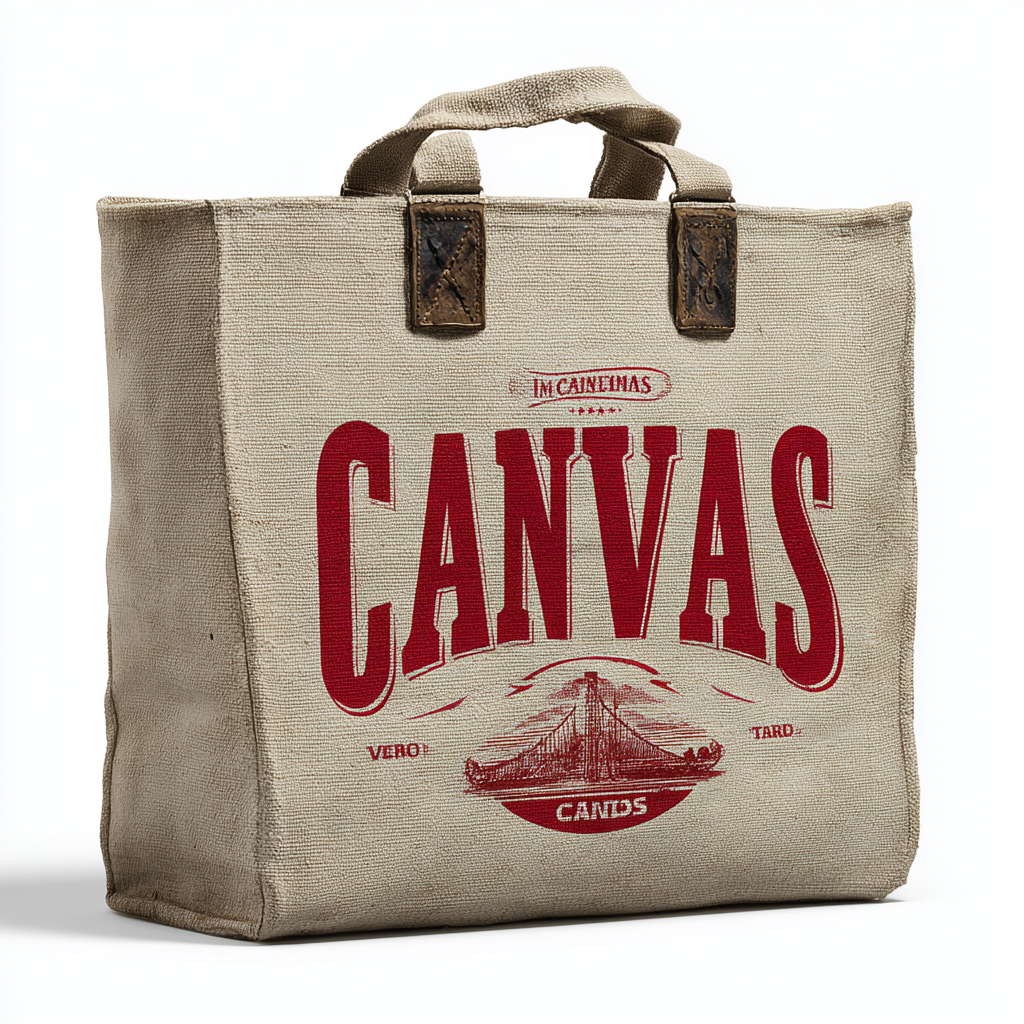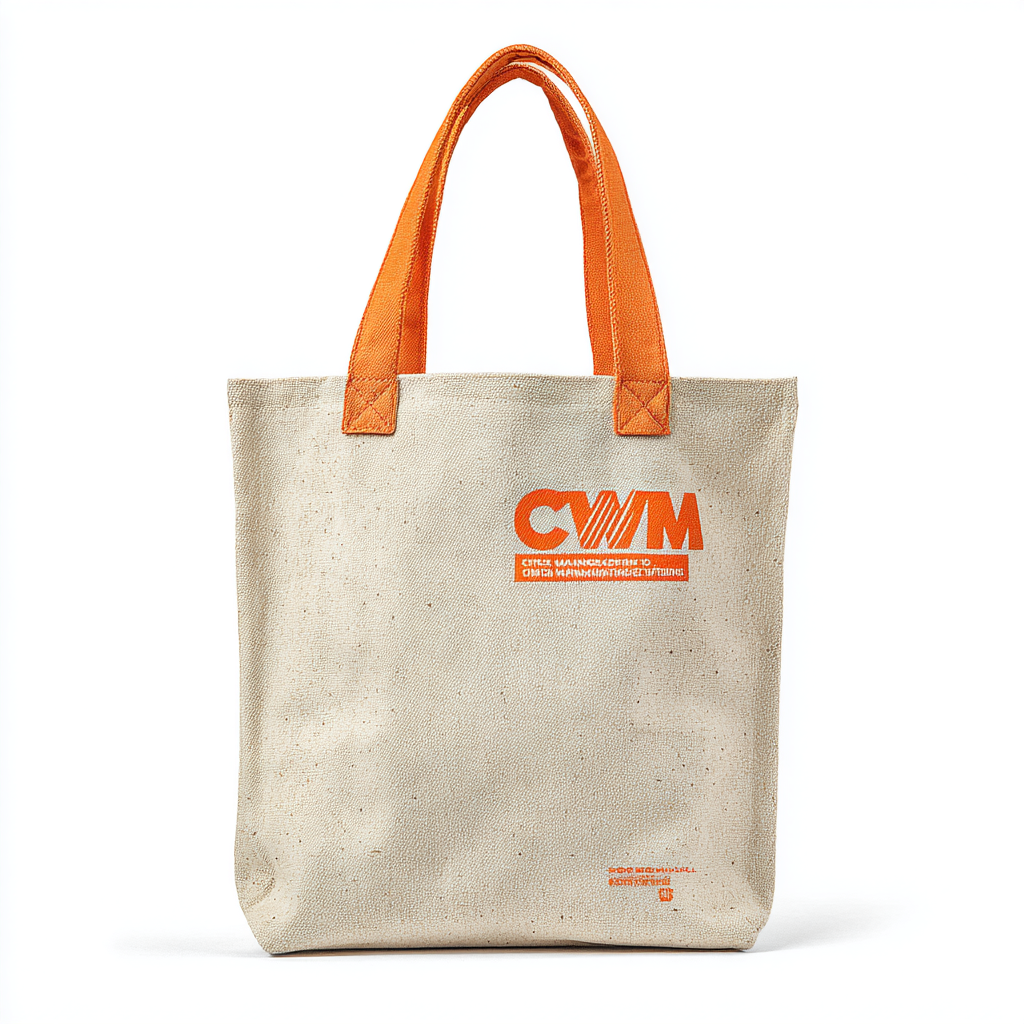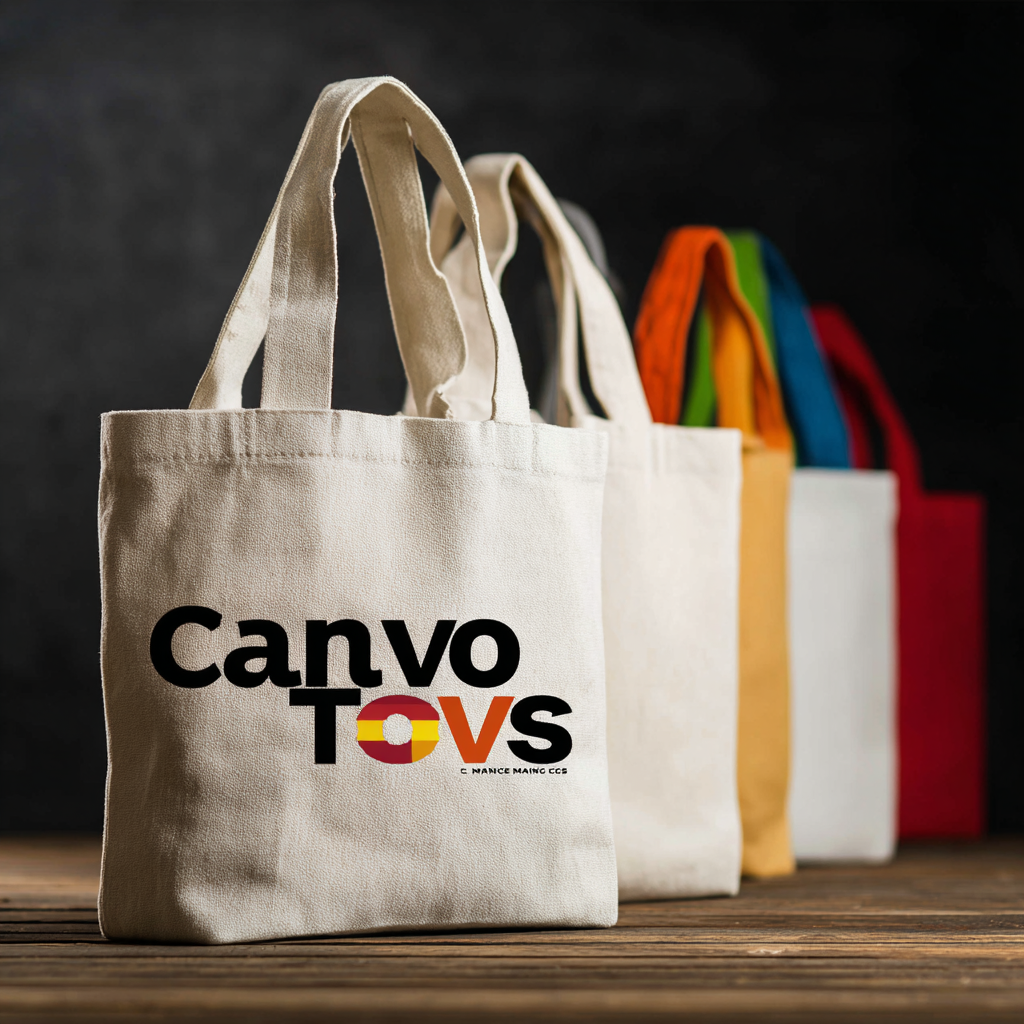In recent years, the global demand for sustainable and stylish products has surged, particularly for eco-friendly accessories like the Canvas Tote. According to a report by Mordor Intelligence, the global market for tote bags is expected to grow at a CAGR of 5.4% from 2021 to 2026, with a significant portion attributed to the rising consumer preference for reusable and versatile options.
 As manufacturers in China harness advanced technologies and innovative materials, they're positioned to meet this demand with high-quality canvas totes that stand out in both functionality and design. This transition not only benefits the environment by reducing single-use plastic but also enhances the reputation of manufacturers who commit to excellence and sustainability in production.
By unleashing the best Canvas Tote from China to the world, we explore the factors driving this evolution and the reasons behind its growing popularity in the global market.
As manufacturers in China harness advanced technologies and innovative materials, they're positioned to meet this demand with high-quality canvas totes that stand out in both functionality and design. This transition not only benefits the environment by reducing single-use plastic but also enhances the reputation of manufacturers who commit to excellence and sustainability in production.
By unleashing the best Canvas Tote from China to the world, we explore the factors driving this evolution and the reasons behind its growing popularity in the global market.
When searching for a high-quality canvas tote manufacturer, it’s essential to identify key traits that ensure superior products. One of the primary characteristics to look for is craftsmanship. A reputable manufacturer invests time and resources in skilled labor, utilizing advanced sewing techniques and high-quality materials. This attention to detail not only enhances the durability of the tote but also contributes to its aesthetic appeal, making it a desirable choice for consumers worldwide.
Additionally, environmental responsibility is becoming increasingly important in today's manufacturing landscape. A high-quality canvas tote manufacturer should prioritize sustainable practices, such as sourcing organic cotton and using eco-friendly dyes. This commitment not only reflects a dedication to environmental stewardship but also resonates with eco-conscious consumers looking for responsible products.
By evaluating these traits—craftsmanship and sustainability—businesses can confidently select a manufacturer that will deliver exceptional canvas totes worthy of the global market.
In the competitive landscape of global manufacturing, understanding the significance of certifications and standards is essential for businesses seeking to excel. The ISO 9000 standards stand out as crucial benchmarks for quality management systems, helping organizations ensure consistent product quality and enhance customer satisfaction. By achieving ISO 9000 certification, manufacturers not only streamline their processes but also increase marketability, as consumers and partners increasingly favor businesses that adhere to internationally recognized standards.

Moreover, the integration of sustainability standards is becoming just as important. As industries grapple with environmental concerns, implementing renewable energy certifications and responsible raw material management practices has gained traction. This not only enhances a company's reputation but also reflects a commitment to social responsibility and environmental stewardship. In a world where consumers prioritize ethical sourcing and sustainability, adhering to these evolving standards can be a key differentiator in the marketplace, fostering trust and loyalty.
Assessing production capabilities is critical when it comes to ensuring optimal quality assurance in manufacturing. To begin with, it is essential to evaluate the technological capabilities of a manufacturer. This includes examining the machinery, production processes, and materials used. A manufacturer with advanced technology and innovative processes is more likely to produce high-quality products that meet international standards. Additionally, inspecting the quality control measures in place is vital. Regular audits, ISO certifications, and adherence to safety regulations can significantly contribute to a company’s reliability.
Furthermore, the workforce's skill set is another critical aspect of production capabilities. A well-trained, experienced team can enhance productivity and ensure meticulous attention to detail throughout the manufacturing process. It’s beneficial to consider the training programs the manufacturer offers to its employees, as investing in workforce development can directly impact the final product's quality. By focusing on these key areas, companies looking to source canvas totes from China can make informed decisions, ultimately leading to a successful partnership and exceptional product quality in the global market.
| Production Criteria | Assessment Metrics | Quality Assurance Status | Production Capacity (Units/Month) | Lead Time (Days) |
|---|---|---|---|---|
| Material Sourcing | Supplier Quality Score | Pass | 5000 | 30 |
| Production Techniques | Efficiency Rate | Excellent | 7000 | 25 |
| Testing and Compliance | Certification Status | Certified | 6000 | 20 |
| Workforce Skills | Training Levels | High | 8000 | 15 |
| Customer Feedback | Satisfaction Rating | 4.8/5 | 5000 | 10 |
In today’s eco-conscious marketplace, evaluating supplier sustainability practices is vital for brands seeking to produce eco-friendly products like canvas totes. As consumers become more aware of the environmental impact of their purchases, manufacturers are pushed to adopt sustainable practices throughout their supply chains. This involves assessing the sourcing of raw materials, production processes, and the overall carbon footprint of their operations.
Many suppliers in China are leading the charge by implementing innovative practices that not only reduce waste but also promote the use of organic and recycled materials. For instance, some manufacturers are shifting to water-based inks and biodegradable materials, minimizing harmful chemical usage and ensuring that the end products are safe for the environment. Collaborating with suppliers that prioritize sustainability allows brands to create high-quality canvas totes that resonate with eco-minded consumers, ultimately driving both sales and brand loyalty. Investing in eco-friendly manufacturing makes good business sense while contributing to a healthier planet.
Establishing strong communication with Chinese manufacturers is vital for success when exporting products like canvas totes. According to a report by McKinsey & Company, effective supply chain collaboration can reduce lead times by 25-30%, significantly impacting overall efficiency and cost-effectiveness. Therefore, mastering communication can be the game-changer in your business dealings.
Tip 1: Be Clear and Specific
When communicating your requirements, clarity is key. Avoid vague descriptions and provide detailed specifications including size, color, material, and expected delivery times. This not only minimizes misunderstandings but also ensures that manufacturers can meet your needs accurately.
Tip 2: Utilize Technology
Leverage communication tools and platforms like WeChat or WhatsApp, popular in China for business discussions. These platforms facilitate real-time communication and file sharing, allowing for rapid feedback and adjustments. A seamless connection can enhance your relationship with your manufacturer significantly.
Tip 3: Schedule Regular Updates
Establish a routine check-in schedule. Regular updates help track project progress and proactively address potential issues. A study from Harvard Business Review found that companies that maintained consistent communication with their suppliers saw a 20% improvement in project timelines.
